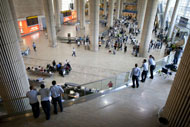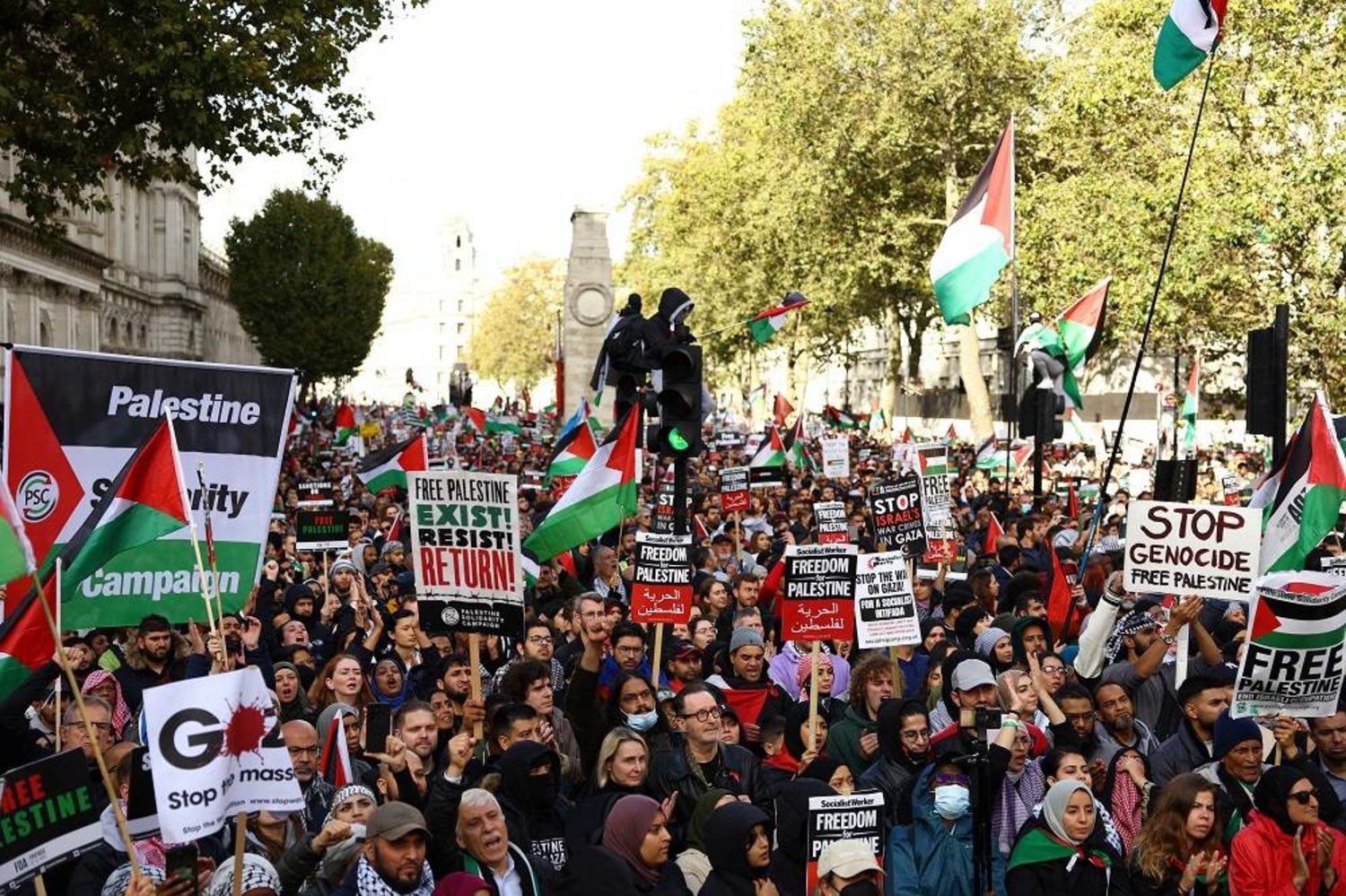It looks as if the long-anticipated November summit is actually going to be held in November like scheduled. After much speculation and rumors of delay, the United States has announced November 26 as the tentative date for the Middle East peace summit to be held in Annapolis, Maryland.
While the Palestinians, Israelis and even the Americans are all no strangers to summits, agreements and peace conferences all gone bust, this summit could just be the make or break meeting for all those involved. Everyone, - politicians and political pundits alike – agree that the autumn summit under American auspices, is a risk, a political wager, that could result either in a breakthrough of sorts or disastrous repercussions for the Palestinians in particular.
For the newly established Palestinian government under Mahmoud Abbas, this summit could be the single event that secures his legacy as a responsible and successful leader of the Palestinians, who achieved feats no other leader before him could. If the leaders emerge from this summit with an agreement in hand, and broad and acceptable guidelines drawn out for solving the core issues such as refugees, permanent borders and Jerusalem, then it is fair to assume that Abbas will be hailed as a national hero, not just at home but in the international arena as well.
Similarly, if US President George W. Bush leaves office with a permanent peace agreement between the Palestinians and Israelis under his belt, he will at least go down in history for something other than botching up Iraq and Afghanistan, not to mention the thousands of dead US soldiers on his head. This could be a saving grace for Bush and for the Republicans in general, who have rightfully developed a bad reputation, what with the ongoing counterproductive “war on terror” and sex scandals that have plagued the party.
Even for Israeli Prime Minister Ehud Olmert, who many Israelis view as a weak leader, a success in Annapolis could mean a boost in popularity and also a chance to score certain points over previously contentious issues. Take for example, the settlements in the West Bank. Illegal and illegitimate according to international law, Israel has managed to not only maintain already existing settlements but to continue to expand them under the pretext of “natural growth.” These illegal colonies, built on expropriated Palestinian land, are now called “communities” by Israel – inhabited by Israeli citizens who just happen to live in the West Bank.
Israel, like with so many other clear-cut illegalities, has draped the settlements in legal jargon, thus essentially stripping away any justification for arguing their illegality. If Annapolis succeeds, Israel will be able to secure this guise of legality for a highly illegal and illegitimate issue, which the Palestinians have been screaming about since the beginning of the occupation in 1967. Israel has repeatedly insisted that it will not withdraw from major settlement blocs in the West Bank. This summit could be Israel’s golden opportunity to put any controversy over these settlement blocs to rest if a final agreement stipulates that the settlement blocs would be permanently annexed to Israel in exchange for a “land swap” with the Palestinians, most likely in some godforsaken area such as the Negev Desert.
The same can be said for thorny issues such as the refugee right of return, which Israel rejects on principle. A success for Olmert would be an agreement that would put this issue to rest in a way that would appease the Palestinians without compromising Israel’s Jewish nature and which would ensure that the subject of the right of return is never again raised.
As an extra “cherry on top” Israel is hoping that if Syria decides to attend, this could open the door to more normal relations with one of its historical enemies. So far, Syria has maintained that it will not participate in the summit unless the agenda includes the Golan Heights, occupied by Israel in the 1967 War and later annexed in 1981. While Israel insists the summit will not include the Golan, it is still hoping that once Syria is there, new opportunities for Arab acceptance could present themselves without it having to offer further political compromises to the Arabs or the Palestinians.
However, given the history of past summits and attempts at reaching agreements, most observers are in consensus that not too much should be expected from the Annapolis summit. Without delving into the multitudinous reasons for its likely failure, it is more important to consider the ramifications if this conferences crashes and burns.
For Abbas, this could be the beginning of his presidential demise. Without a popular platform and in command of an already disenchanted and painfully divided people, Abbas’ only hope is to gain international legitimacy and recognition. If he comes back empty handed – no agreement, no solid promises, and no achievements to speak of on the ground – Abbas will more than likely find himself up against a newly empowered Hamas, sticking its “I told you so” finger accusatively in his face.
This is certainly what the Israeli military predicts. Sources from the Israeli Military Intelligence told the Israeli daily Haaretz that the summit’s likely failure would result in Abbas stepping down and Hamas stepping up.
Most Palestinians are also not pinning too many hopes on this month’s meeting. US Secretary of State Condeleezza Rice has come and gone and is coming back again next week, without the Palestinians paying too much attention to her visits. They may listen to the joint press conferences, of promises about the establishment of a Palestinian state before Bush leaves office and Palestinian demands for a halt to Israeli military incursions, settlement expansion and assassinations. However, Palestinians have learned not to raise the bar of their expectations too high when it comes to international mediation, in their cause. This is especially true for the United States, whose known bias towards Israel has always tainted its so-called objectivity.
With this in mind, one wonders why President Abbas would agree to attend the summit at all if the odds are stacked so high against him. The answer is simple: without it, Abbas has very little to fall back on. Without the popularity of his predecessor Yasser Arafat or even Hamas, Abbas needs to quickly convince his people that he is truly acting in their interest. If he succeeds in making a dent in the internal Palestinian disaster that has ensued over the past few years, this could prove to be his last winning card.
It is a long shot, no doubt. The Palestinians learned long ago that Israel does not feel compelled to undo the injustice it has inflicted on the Palestinians. On the contrary, it has granted itself the right to continue to oppress and occupy them undeterred. So, extracting concessions from Israel based on this premise is anything but an easy task. Still, Palestinians continue to hope beyond hope that this time, things will turn out differently.
Joharah Baker is a Writer for the Media and Information Programme at the Palestinian Initiative for the Promotion of Global Dialogue and Democracy (MIFTAH). She can be contacted at mip@miftah.org.










